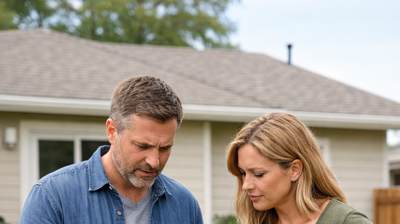When a hurricane strikes, most people think of high winds, heavy rainfall, and property damage. One often overlooked consequence is the hurricane’s impact on septic systems. Whether you live in a coastal region or inland area prone to flooding, your septic tank could be at serious risk during and after a major storm.
Understanding how hurricanes affect septic systems — and how to prepare and respond — is essential to protecting your home, your health, and the environment.
Peak Hurricane Season = Peak Risk
The peak of the Atlantic hurricane season is September 10, but activity typically ramps up from mid-August to mid-October. This period brings an increased threat of severe storms, making it the most important time of year for homeowners with septic systems to be proactive about storm prep for septic systems.
What Happens to a Septic System During a Hurricane?
Hurricanes can cause a range of issues for septic systems. Let’s look at a few so you can be prepared.
Flooding and Saturated Drain Fields
Heavy rainfall and storm surge can flood your yard and saturate the soil around your drainfield. When the drainfield becomes waterlogged, it can no longer absorb and filter wastewater properly. This causes backups into your home or surface pooling of sewage — a serious health hazard. Septic tank flooding during storms is a common and costly problem for homeowners.
Tank Damage from Rising Water
Septic tanks, especially if not properly secured or maintained, can shift, float, or crack during major floods. Concrete tanks can crack under pressure, while plastic tanks may float upward if the surrounding soil becomes oversaturated, damaging inlet and outlet pipes.
Power Outages Impacting Pumps
For homes with pump-powered septic systems, power loss during a storm means wastewater isn’t moving through the system. If the pump can't remove sewage from the tank, backups or overflows may occur.
Contaminated Groundwater
Overflowing or damaged septic systems can leach raw sewage into the surrounding soil, contaminating groundwater and posing risks to nearby wells, waterways, and wildlife. This contamination can persist long after the storm has passed.
How to Prepare Your Septic System for a Hurricane
Septic system maintenance before a hurricane is crucial for minimizing storm damage. Here are a few smart steps to take before the storm hits:
- Have your tank inspected and pumped if it's nearing capacity or hasn't been serviced in the last 3–5 years. An empty or recently pumped tank is less likely to overflow or float.
- Mark your tank and drainfield so they are easy to locate, especially in the event of debris or standing water.
- Turn off the system’s electrical components (if applicable) before the storm arrives to prevent damage from power surges or water exposure.
- Divert roof runoff and downspouts away from the drainfield to avoid excess saturation.
- Limit water usage during and immediately after the storm. Reduce flushing, showers, and laundry to avoid overwhelming your system while the ground is still saturated.
This level of preparation goes a long way in protecting septic tanks during hurricanes.
What to Do After the Storm
Once the storm has passed, don’t rush to resume normal use of your septic system. Follow these post-storm steps:
- Inspect your system for visible signs of damage, such as pooling water, odors, or clogged drains.
- Avoid using the system if your yard is still flooded or soggy. Give the ground time to dry out so the drainfield can begin functioning properly again.
- Call a professional to evaluate your system before doing any digging, pumping, or repairs.
- Disinfect and clean areas where sewage may have backed up into your home.
Final Thoughts
A hurricane can wreak havoc on your septic system, but being prepared can greatly reduce the risk. As we move through the heart of hurricane season, take time to inspect, maintain, and plan ahead for your septic system's safety.
Storms are unpredictable, but your response doesn’t have to be. With a little foresight and the right steps, you can weather the storm — and protect your septic system while doing it.


.2508140821154.png)


